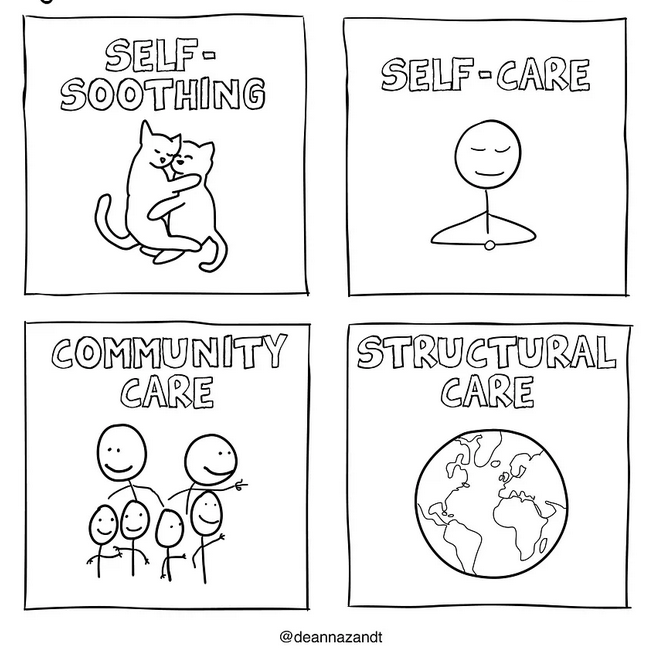When I’m in a more stressed & compressed period of time, I tend to focus in on “what needs to get done” and reduce my own needs to the bare minimum. At the beginning of a longer stretch of intensity (work, family, personal health challenges, etc), I can hold my boundaries pretty well, keep my morning journaling and stretching practices, eat decently (if imperfectly), sleep on time, take breaks to walk around the block, remember to stay in touch with my friends.
But as the marathon wears on without an indication of when it will end or ease up, my self-care practices start to fall apart. Once they do, it’s a pretty quick slope down to feeling trapped, isolating myself, showing a grumpy demeanor, secret cookie-eating, and the other sides of myself that come out when I’m not meeting my needs in direct and healthy ways. Sound familiar?
If you’re newer to thinking about self-care as a regular practice (vs an escape you do once in a while), or you’re worn down and could use a refresher, take a look at these helpful images from Deanna Zandt’s 2019 graphic essay, “The Unspoken Complexity of ‘Self-Care’” (click to enlarge any image).
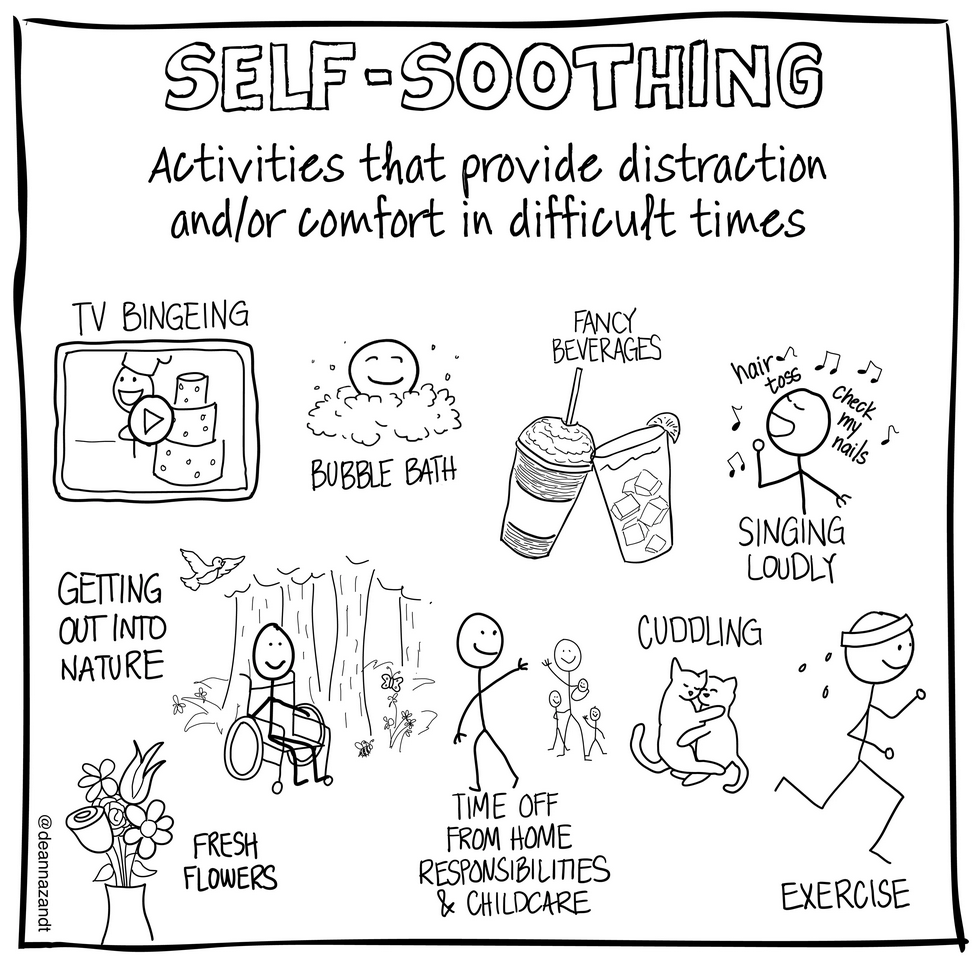
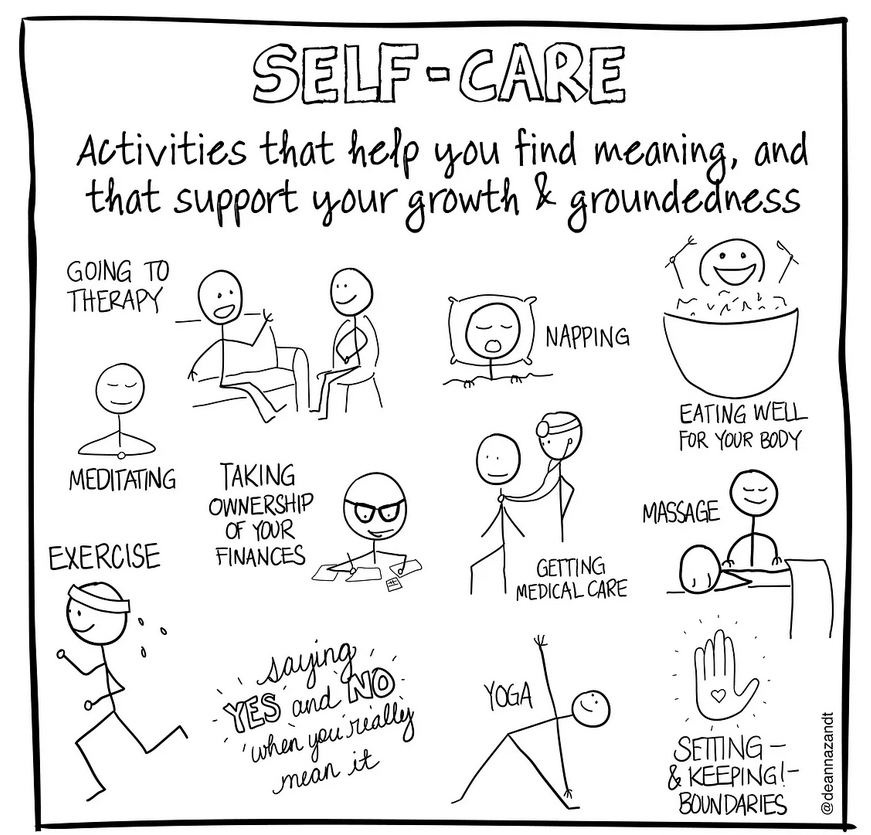
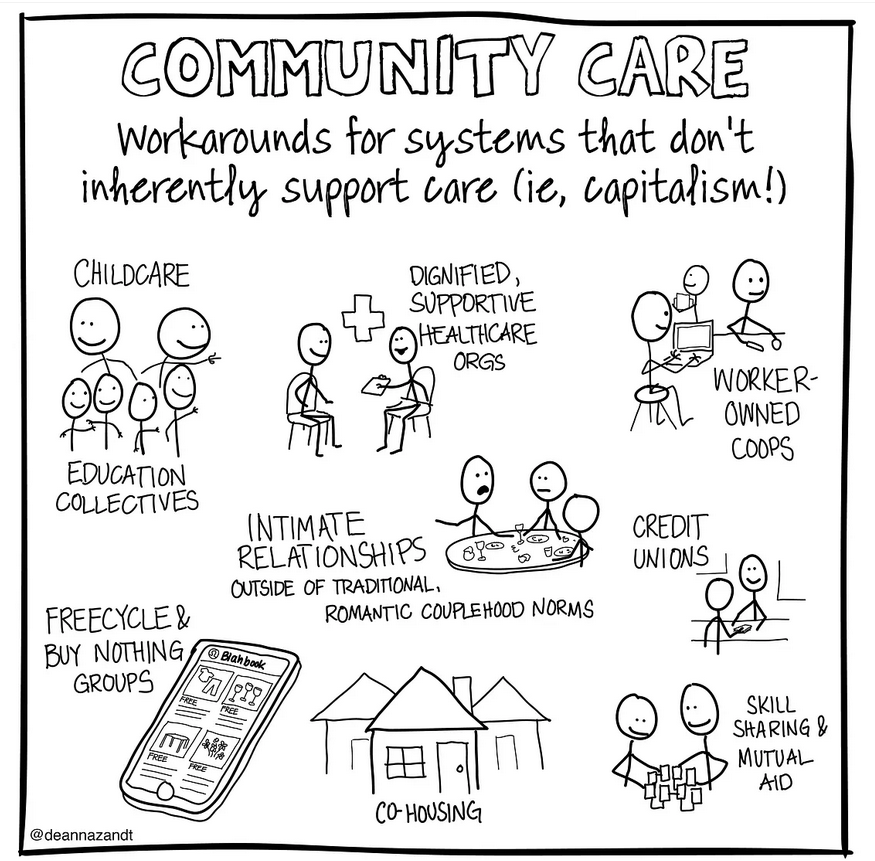
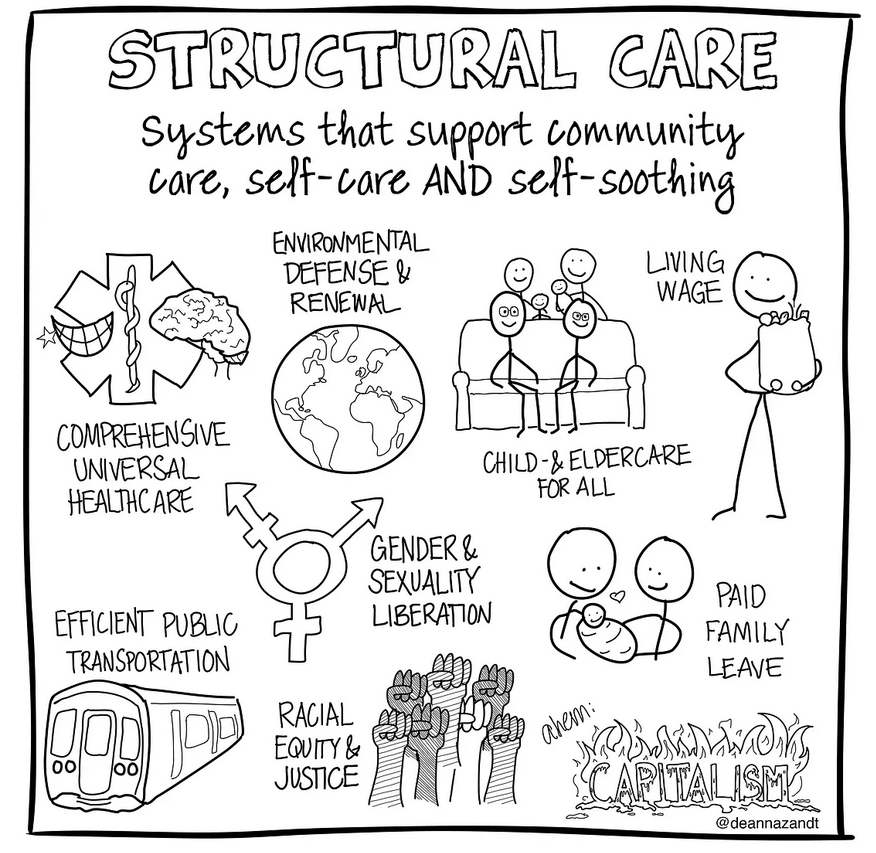
I really appreciate that Deanna’s take situates self care as occurring at multiple levels of society, so that we can zoom out and shake off the shame that tends to arise when we’re past our limits and blaming ourselves or others for our dysregulation, dissatisfaction, or general feeling of everything being fucked up. It’s a balancing act for sure — yes, each of us has the individual responsibility to take care of ourselves, and also, the degree to which a specific person has the power to do that effectively depends on their social location and access to time, money, and social resources. That is, freedom of choice isn’t equally distributed across society.
Wherever you find yourself in this moment, I recommend using this self-care assessment (below) as a snapshot of your current practices. One thing that I like about it is that the authors break self-care down into different dimensions of self, including physical, psychological, emotional, spiritual, relational, and workplace/professional. View it as a guide, not a prescriptive list of what has to be most important for you.
Reach out – I’m here for you.
If you’re in one of these ongoing stretches of enduring an illness or providing care to someone who is and you could use some support, drop me a line! I would love to help you shift gears from “oh god this is hell all the time” to somewhere closer to “wow, I didn’t know it was possible to feel calm and supported and only be in hell some of the time”.

